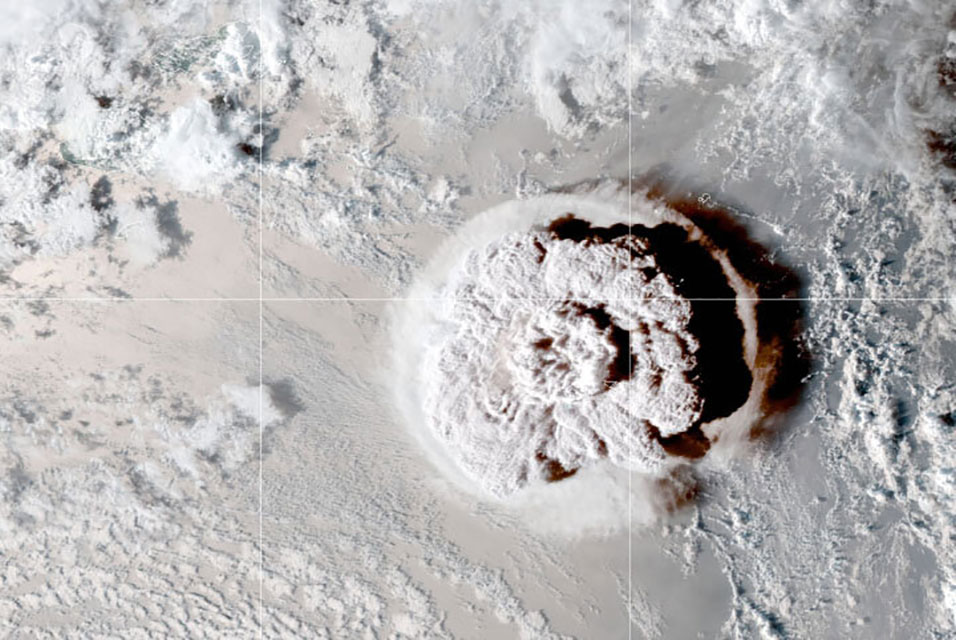BATH.- The eruption of the Hunga Tonga-Hunga Ha'apai submarine volcano in January 2022 was one of the most explosive volcanic events of the modern era, a new study has confirmed.
Led by researchers from the
University of Bath and published in Nature, the study combines extensive satellite data with ground-level observations to show that the eruption was unique in observed science in both its magnitude and speed, and in the range of the fast-moving gravity and atmospheric waves it created.
Following a series of smaller events beginning in December 2021, Hunga Tonga erupted on 15 January this year, producing a vertical plume that extended more than 50km (30 miles) above the surface of the earth. Heat released from water and hot ash in the plume remained the biggest source of gravity waves on earth for the next 12 hours. The eruption also produced ripple-like gravity waves that satellite observations show extended across the Pacific basin.
The eruption also triggered waves in our atmosphere that reverberated around the planet at least six times and reached close to their theoretical maximum speeds—the fastest ever seen within our atmosphere, at 320m per second or 720 miles per hour.
The fact that a single event dominated such a large region is described by the paper's authors as unique in the observational record, and one that will help scientists improve future atmospheric weather and climate models.
Dr. Corwin Wright, a Royal Society University Research Fellow based at the Center for Space, Atmospheric and Oceanic Science at the University of Bath, is the paper's lead author. He said: "This was a genuinely huge explosion, and truly unique in terms of what's been observed by science to date. We've never seen atmospheric waves going round the whole world before, or at this speed—they were traveling very close to the theoretical limit.
"The eruption was an amazing natural experiment. The data we've been able to gather on it will enhance our understanding of our atmosphere and will help us improve our weather and climate models."
Co-author Dr. Scott Osprey from the National Center for Atmospheric Science, based within the Department of Physics, University of Oxford, expects to see further impacts from the Hunga Tonga eruption: "Our study nicely shows how the striking display of global waves is driven by the huge amounts of seawater vaporized during the eruption. However, my gut feeling is that there is more to come from this eruption. As the exceptional amount of water vapor spreads throughout the stratosphere, eyes will turn to the Antarctic ozone hole and just how severe it will be in the spring."









